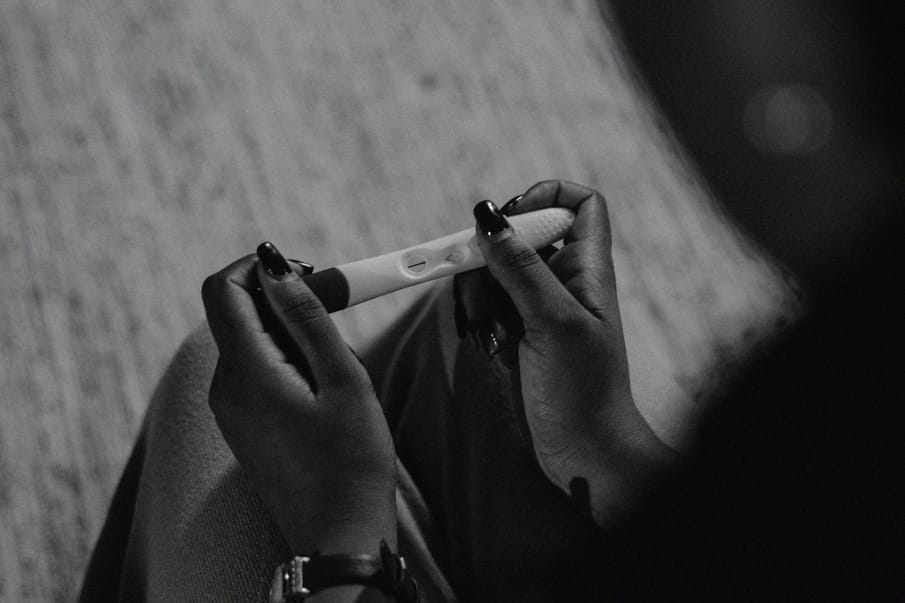From repeated disappointments or no one to talk to, to intrusive questions, and navigating the emotions of other people’s announcements, the mental toll of trying to get pregnant can be tough – so here we’re exploring effective ways to help you manage it
Trying to conceive can be an exciting time, but if your road to pregnancy is proving more difficult than expected, you’ll know it can also be an incredibly lonely journey – punctuated by uncertainty, grief, and despair.
Making a baby can quickly become all-consuming, and with so much hope invested in the end goal, the disappointment when the pink line doesn’t appear can be devastating.
Another thing that can make trying to conceive all the more isolating? It’s rarely talked about. Fertility is still a taboo subject, and many couples like to keep their pregnancy plans to themselves. As a result, you might feel you’ve no one to turn to when you need an outlet most.
Let’s look at the facts: eight out of 10 couples (where the woman is under 40) will conceive within one year of trying, according to a summary of NICE guidance in the BMJ, but even when you know that conception often takes time, it can still be heartbreaking when another month goes by without a ‘big fat positive’ (BFP). So, how can you manage the impact on your mental health?
“A year doesn’t sound like a long time to most, but for the person who is trying to get pregnant, every month that passes can erode their confidence,” points out Dany Griffiths, the creator of the Freedom Fertility Formula, a programme that combines counselling and coaching to help women and their partners manage the emotional impact of infertility.
It can be a difficult and uncertain time, and Dany says the fear and uncertainty can increase with each month that passes without a positive pregnancy test. “I call this the ‘downward cycle of despair’ as each month starts with hope, followed by the fear of not getting pregnant again,” she notes.
The two week wait
One particularly challenging aspect of trying to conceive is navigating the two-week wait (TWW) – that anxious two-week period between your fertile window, and being able to take a pregnancy test.
Every twinge you interpret as a pregnancy symptom, and as you wait for the life-altering result you’re hoping for, you may find it difficult to think of little else. Perhaps a big part of you is reluctant to even hope for the best, because you worry that your hopes will be dashed yet again.
“To help with the not knowing, I have my clients say to themselves ‘What I do know right now is that I don’t know,’ because the survival part of our brain doesn’t like uncertainty,” says Dany. “Using this statement can ‘trick’ the brain into believing something is certain,” she explains, and may temporarily put your mind at ease as you count down the days.
Having something to look forward to could take your mind off things, too. Trying to conceive often means putting a little bit of your life on hold. You might be reluctant to commit to social plans or book a holiday, for example, when you don’t know what the future holds, so consider using this time as an opportunity to do more of what you enjoy. Maybe that means going out for delicious brunches with your other half, carving out extra time in the evenings to kick back with a book, or catching up with a friend over a cuppa.

Part of what makes the two-week wait so challenging is that it has enormous potential for disappointment. Anita Guru, a coach and trainee psychotherapist who works for the Fertility Network UK, says the feelings of grief after a negative test can be overwhelming and traumatic.
She believes having an outlet when you get a negative test is hugely important – whether it’s talking about how you feel with someone you trust, confiding in your partner, or scheduling in some extra self-care. Ultimately, she says it’s OK to feel upset, and even cry. “It’s always better to express the emotions you’re feeling, so they don’t build up and cause deeper mental health challenges,” she says.
Managing pregnancy announcements
A peculiar thing happens when you start trying for a baby: suddenly everyone starts announcing they’re pregnant. Or, at least, it might seem that way.
Other people’s baby joy can feel particularly painful, especially if it’s someone close to you who is sharing the news. Anita says the best way to describe it is feeling happy for them, but sad for yourself, and this conflict of emotions can be disconcerting. You might feel guilty for not being completely overjoyed about someone else’s good news.
At the same time, you may be wondering: ‘Why them, and not me?’ When it feels like everyone around you is having an easy time getting pregnant, it can compound those feelings of uncertainty, and cause you to question whether something is wrong.
Anita says all these feelings are normal and valid, and, as hard as it may be, you should try not to judge yourself for them.
It’s also important to bear in mind that you don’t always know what someone has gone through to get a positive test. It’s a very private journey for most people, after all.
While it’s good to process these emotions, either by talking it out or reflecting on them in a journal, it’s OK to enter self-protection mode, too. Anita says you can skip events like baby showers if, emotionally, you aren’t feeling up to it.
And if a friend’s online pregnancy updates are too triggering? You might like to hit the ‘mute’ button for the time being.
Handling unsolicited advice
“When are you two going to have a baby?” “Hurry up and start a family already!” If you’ve been trying for a little while, you’ve undoubtedly heard these phrases (or variations) of them from well-meaning friends and family. And you’ll know they can really sting.
It’s not just probing questions about when your loved ones can expect to hear the pitter-patter of tiny feet either. If you’ve let people know you’re trying, you may find that suddenly everyone is an expert in conception. “Just relax and let it happen,” they might say. “Are you eating well to improve your chances?” they might ask. It’s easy to interpret these suggestions as: “You aren’t trying hard enough.”
Anita recommends having a response prepared, so you aren’t caught off guard. “This could be as simple as ‘We are on a journey and it is private.’ You shouldn’t feel compelled to talk about private matters; you should only respond with what feels comfortable.”
If you’re feeling up to it, Dany says you can be blunt when people say something that isn’t helpful. You could tell the person that you are trying and it has been difficult, and that their questions and comments are hard to hear.
Not only can this help you regain a sense of control, it may encourage loved ones to think twice about making similar remarks to others in the future.
The most sensitive answer is never. Only if the individual, or couple, has brought it up themselves would it be safe to broach the subject. Even if you have the best intentions, asking someone when they’re going to have a baby can be upsetting and triggering for a number of reasons – whether because they don’t want kids, can’t have kids, have been struggling to conceive, recently miscarried, or might actually be pregnant but not ready to share the news yet. It’s best to allow loved ones to bring up the conversation directly, rather than unintentionally creating distress for someone you care about.
Your emotions are valid
There are no guarantees when you start trying for a baby. The pain of probing questions, anxious waits, and negative pregnancy tests, may be relatively short-lived, or they may be only the start of your journey. That’s part of what makes trying to conceive so emotionally challenging.
It may be some comfort to know that you are not alone. There are countless people on a similar journey, and they know exactly what you are going through. It’s a reminder that your emotions – all of them – are valid.


Comments